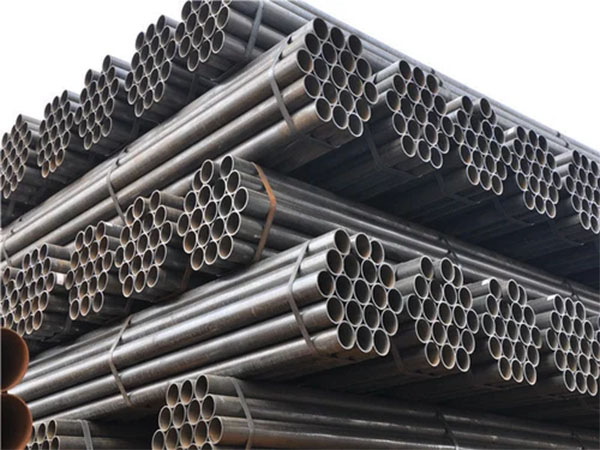Among various pipe specifications, Schedule 40 steel pipe has become the preferred pipe material in municipal water supply and drainage, HVAC, petrochemical and structural support fields due to its moderate wall thickness, reliable pressure-bearing capacity and economic cost advantage. Whether it is carbon steel, corrosion-resistant stainless steel, or alloy steel and galvanized steel for high temperature and high pressure, Sch 40 grade can provide stable performance and wide application possibilities, and is an indispensable pipe in engineering material selection and construction.
Schedule 40 Definition of Steel Pipe
Schedule (Wall Thickness Grade) : Derived from the ANSI B36.10/B36.19 standard, it is used to indicate the wall thickness of pipes. Schedule 40 (Sch 40) provides medium wall thickness at the same diameter, taking into account pressure resistance and cost advantage.
Common standards
ASTM A53/A106 (carbon steel tubes)
API 5L (oil and gas pipeline)
ANSI B36.10/B36.19 (dimensions and wall thickness specifications)

Schedule 40 Material Classification of Steel Pipes
1. Carbon Steel pipe
Common grades
ASTM A53 Gr.B: general type, easy to weld and bend.
ASTM A106 Gr.B: excellent heat resistance.
API 5L Grade B: specifically designed for oil and gas transportation.
Application scenarios: Municipal water supply and drainage, fire protection systems, mechanical supports, building scaffolding, etc.
2. Stainless Steel pipe
Common grades
TP304 (1.4301) : Resistant to most neutral corrosive media.
TP316 (1.4401) : Containing Mo, it has stronger resistance to chloride ion corrosion.
Application scenarios: highly corrosive environments such as food, pharmaceuticals, chemicals, and offshore platforms.
3. Alloy Steel Pipe
Common grades
ASTM A335 P11/P22/P91: cr-mo alloy, for long-term use above 600 ° c.
Application scenarios: Boiler tubes in thermal power plants, supercritical steam pipelines, petrochemical cracking furnaces.
4. Galvanized Steel Pipe
Feature: Hot-dip galvanizing or electro-galvanizing is applied to the surface of carbon steel to form a rust-proof layer.
Application scenarios: outdoor water supply, HVAC heating pipes, guardrails, sheds, etc.
Schedule 40 main advantages of steel pipe
Multi-functional: Suitable for medium and low pressure (0.6-2.5 MPa) and normal temperature environments.
Economical and practical: Medium wall thickness, controllable material and construction costs.
Durability: Optional anti-corrosion treatments such as galvanization and epoxy lining are available to extend the service life of the pipeline.
Convenient construction: Easy to cut, weld and process threads, and efficient on-site installation.
Typical application fields
Municipal water supply and drainage: used for transporting tap water, sewage treatment and fire protection systems.
HVAC (Heating, Ventilation and Air Conditioning) : Commonly used as cooling water, air conditioning water and compressed air pipelines.
Petroleum and natural gas: used for medium and low pressure raw material transportation and distribution pipelines.
Structural support: It can be used for scaffolding, railings, mechanical supports and guardrails.
Industrial equipment: Mainly used for equipment cooling, pipeline fittings and frame structures.
Read more : ERW carbon steel pipe schedule 40
